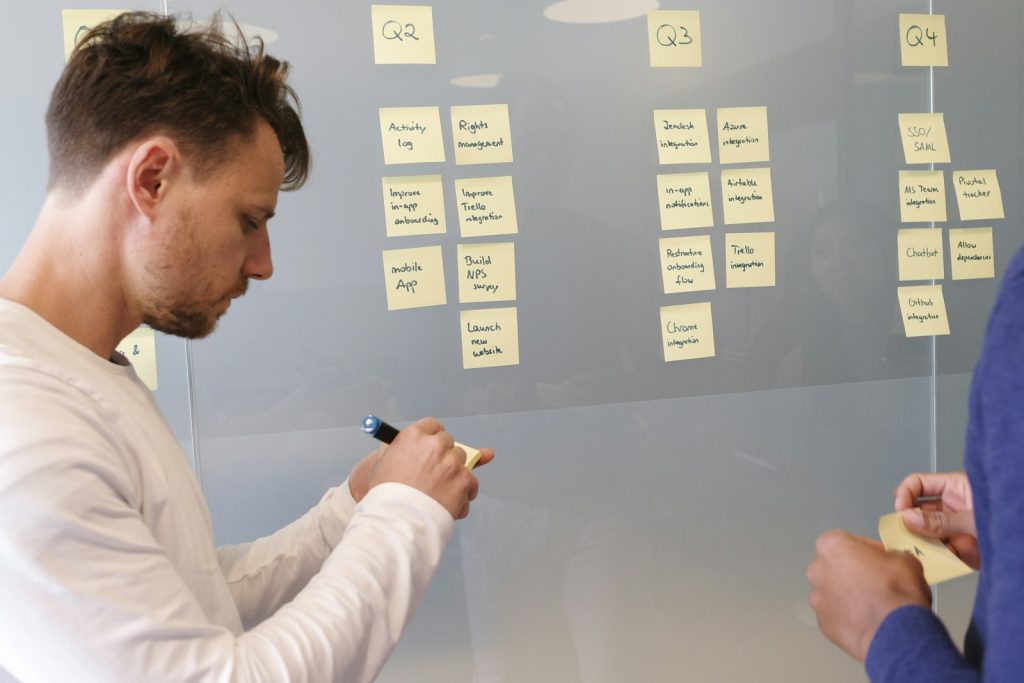Startups in the United States are breaking the old rules. Instead of assembling costly in-house tech teams before even launching a product, founders are proving there’s a faster, smarter way. Through startup staff augmentation, they’re building lean MVPs, testing ideas quickly, and scaling without the burden of traditional hiring. It’s not just a cost-saving strategy, it’s a competitive edge.
The MVP phase, once considered impossible without a team of full-time engineers, is now being tackled by small, focused augmented teams that combine agility with deep technical skill. Across industries, founders are turning to remote development teams to accelerate growth while staying capital-efficient.
So, what exactly is startup team augmentation, and why are US startups embracing it? Let’s explore how this modern development model is helping startups build faster, reduce risk, and stay ahead.
Why Startup Team Augmentation Is Replacing Early Hiring
The conventional startup playbook hire a CTO, recruit a dev team, raise money, then build, has become increasingly outdated. The speed of innovation, the scarcity of local talent, and the financial pressure to deliver results quickly have pushed founders to explore new models. Startup team augmentation has emerged as the answer.
Rather than hiring full-time staff during the riskiest phase of a startup’s life, founders are partnering with expert development teams that integrate seamlessly into their operations. These teams aren’t freelancers or ad hoc agencies—they’re purpose-built squads with product managers, engineers, designers, and QA experts who act as an extension of the startup’s own vision.
What makes this model so effective is the combination of flexibility and firepower. With the right partner, such as Dev Centre House, startups can build and launch MVPs in record time without making long-term staffing commitments. Their Startup Programme is specifically designed to help early-stage ventures achieve product-market fit faster and with more confidence.
Build MVP Without Hiring: A Proven Strategy for Speed

The MVP, or Minimum Viable Product, is the cornerstone of any startup’s journey. It’s the moment of truth, when an idea meets real users. But building an MVP with an in-house team is often slow, expensive, and filled with hiring headaches. That’s why more startups are choosing to build MVP without hiring by tapping into remote development expertise.
In practice, this looks like a founder outlining the core product idea and immediately accessing a high-performing team that can design, build, and iterate on the MVP, without the delays of recruiting or training. With Dev Centre House, for example, startup clients gain access to a dedicated product team skilled in agile delivery, UI/UX design, and scalable architecture.
These teams are accustomed to the pace and demands of startup life. They’re not just writing code; they’re thinking about user experience, feedback loops, and future scaling potential. Most importantly, they’re accountable to outcomes, launching usable, testable products quickly so founders can focus on growth and funding.
Remote Development Team for Startups: How It Actually Works
Engaging a remote development team for startups isn’t about outsourcing tasks, it’s about building trust and creating results through collaboration. Today’s remote teams work in synchrony with startup founders across time zones, using agile methodologies and modern communication tools to stay in sync.
A typical engagement begins with a discovery session. This is where the startup’s goals, challenges, and timeline are mapped out. From there, a custom team is formed, often including a product owner, designers, developers, and QA engineers. Daily stand-ups, sprint planning, and regular demos keep progress transparent and iterative.
What sets remote development apart is the speed of mobilisation. While hiring a local team can take months, Dev Centre House assembles and activates teams within days, giving startups immediate access to seasoned talent.
By blending the precision of European engineering with startup-focused delivery processes, their Team Augmentation Experts have helped dozens of US startups go from idea to MVP in under 90 days. And because these teams are remote-first by design, there’s no sacrifice in collaboration or quality.
The Benefits of Startup Team Augmentation You Can’t Ignore
One of the most compelling aspects of startup team augmentation is how well it aligns with the real needs of early-stage founders. It’s not just about saving money, it’s about executing smarter.
Firstly, it drastically reduces risk. Hiring a full-time team is a commitment; if the product direction changes or funding is delayed, the startup is left with overhead it may not be able to sustain. With an augmented team, resources can be scaled up or down as needed, offering unmatched flexibility.
Secondly, it improves quality from day one. Because team augmentation partners like Dev Centre House are deeply experienced in launching MVPs, they avoid the common pitfalls of early-stage development. They know how to prioritise features, manage scope, and deliver working software, fast.
Finally, it frees founders to focus on what they do best: building the business. Instead of spending time managing recruitment or chasing junior developers, they gain a trusted product team committed to their success.
When Startup Team Augmentation Makes the Most Sense
This model isn’t for everyone. But it shines in specific scenarios, which many US startups find themselves in:
- You’re a solo or non-technical founder and need a reliable tech partner.
- You’re racing to validate your idea before your next investor meeting.
- You’ve tried hiring locally but can’t find the right talent or cultural fit.
- You’re conscious of burn rate and want lean execution.
- You want to build once and build right, without cutting corners.
For these use cases and more, Dev Centre House offers a startup-friendly framework that balances velocity with strategy. Their team is as committed to product-market fit as the founder is.
Dev Centre House: Helping Startups Go from Idea to Traction
At the heart of this new way of building is a clear mission, make it easier for startups to succeed. That’s what drives Dev Centre House’s work with early-stage founders through their Startup Programme and their Team Augmentation Experts service.
They’re not just writing code; they’re helping entrepreneurs define their MVP, shape their go-to-market strategy, and execute with confidence. Their clients benefit from:
- Startup-savvy product teams ready to move fast
- Proven processes that ensure rapid delivery and clear communication
- Flexible engagement models with no hidden costs
- A strong cultural fit between the team and the startup’s mission
With a presence in Dublin and Eastern Europe, Dev Centre House bridges the gap between US ambition and European execution. Their teams bring not only technical excellence but also empathy, reliability, and a shared passion for innovation.
Final Thoughts
The startup world rewards those who move quickly, learn fast, and spend wisely. That’s why more and more US founders are ditching outdated hiring models in favour of startup team augmentation.
By choosing to build MVP without hiring, and by engaging a trusted remote development team for startups, founders can launch leaner, test earlier, and grow with less friction.
If you’re looking to take your idea from sketchpad to market-ready product, it’s worth asking: do you really need to hire a team, or do you need a team that’s already built to deliver?
The answer, for many, is clear. And it starts with choosing the right partner.
FAQ
Question: Why are US startups avoiding traditional hiring while scaling product development?
Answer: Many US startups are moving away from traditional hiring models due to the high cost, time intensity, and difficulty in retaining talent. Instead, they’re embracing agile squads from trusted partners like Dev Centre House Ireland, enabling them to build, iterate, and scale without the burden of long-term headcount commitments.
Question: What’s driving the “build without hiring” mindset among US startup founders?
Answer: Founders are under pressure to deliver faster MVPs and iterate quickly with limited runway. Partnering with cross-functional squads from Dev Centre House Ireland provides flexibility, speed, and product focus without the overhead of internal recruitment.
Question: How does Dev Centre House Ireland help startups build without hiring?
Answer: Dev Centre House Ireland offers dedicated product squads that integrate seamlessly into startup workflows. These squads bring engineering, product, and design capabilities tailored to the startup’s goals, allowing founders to focus on traction, not team-building.
Question: Are product squads a better alternative to traditional hiring?
Answer: Yes, especially for early-stage startups. Squads from Dev Centre House Ireland are outcome-driven and come fully equipped with the skills needed to deliver, removing the delays of hiring and onboarding. This model supports faster delivery and better alignment.
Question: Can US-based startups collaborate with remote squads effectively?
Answer: Absolutely. Dev Centre House Ireland specialises in enabling remote, distributed squads that collaborate using lean and agile methodologies. The time zone overlap and cultural compatibility with US teams enhance productivity and communication.
Question: What roles are typically included in a product squad from Dev Centre House Ireland?
Answer: A typical product squad may include a product owner, tech lead, developers, UX/UI designers, and QA engineers, tailored to the startup’s specific product goals. Dev Centre House Ireland ensures the squad is cohesive and fully aligned with the client’s vision.
Question: How does the squad model support rapid pivots and iterations?
Answer: With agile squads from Dev Centre House Ireland, startups can pivot features, adjust roadmaps, or re-align with user feedback faster, without the bottlenecks of reorganising internal teams or going through lengthy hiring cycles.
Question: Is this model suitable for startups in growth or post-seed phases?
Answer: Yes. Many startups post-seed or Series A prefer not to expand internal teams too quickly. Leveraging squads from Dev Centre House Ireland helps manage burn while still accelerating product progress. Learn more at https://www.devcentrehouse.eu/en
